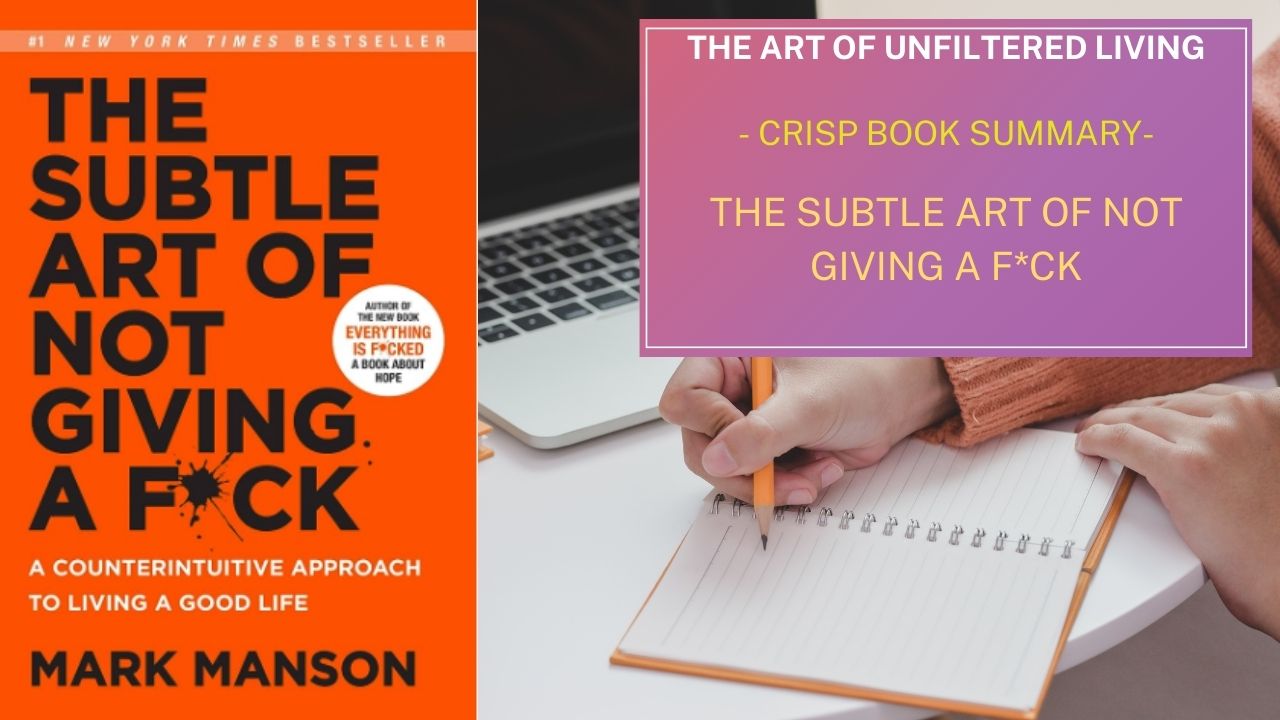“The Subtle Art of Not Giving a F*ck” is a self-help book written by Mark Manson. Published in 2016, the book challenges traditional self-help advice and advocates for a more realistic and nuanced approach to living a fulfilling life. In the book, Manson argues that the key to a meaningful life is not about avoiding problems but choosing the right problems to care about.
Introduction
The book begins by addressing the common misconception that a happy and successful life is synonymous with having a positive mindset and constantly pursuing pleasure. Manson argues that this mindset leads to unrealistic expectations and sets people up for constant disappointment. Instead, he suggests that embracing life’s challenges and accepting the inherent struggles can lead to a more fulfilling and satisfying existence.
Chapter 1: Don’t Try
Manson challenges the conventional wisdom that success and happiness come from relentless effort and perseverance. He argues that it’s essential to choose what to care about wisely and not waste energy on things that don’t truly matter. By embracing our limitations and acknowledging that not everything is worth the effort, we can focus on what truly brings meaning to our lives.
Chapter 2: Happiness is a Problem
Contrary to popular belief, Manson contends that the pursuit of happiness can be counterproductive. He suggests that rather than seeking constant pleasure and avoiding pain, it’s more beneficial to find meaningful problems to solve. Happiness, he argues, is a byproduct of solving problems and facing challenges head-on.
Chapter 3: You Are Not Special
Manson challenges the notion of everyone being unique or exceptional. He argues that the constant pursuit of feeling special can lead to entitlement and dissatisfaction. Instead, he encourages embracing the idea that everyone is ordinary in some way, and acknowledging our flaws and limitations can lead to personal growth and a more realistic outlook on life.
Chapter 4: The Value of Suffering
In this chapter, Manson explores the concept of suffering and how it can lead to personal growth. He argues that avoiding pain and discomfort ultimately leads to stagnation, while facing and embracing suffering can be transformative. By choosing meaningful challenges, individuals can find purpose and meaning in their lives.
Chapter 5: You Are Always Choosing
Manson emphasizes personal responsibility and the power of choice. He argues that everything in life is a choice, and taking ownership of our decisions, even in difficult circumstances, is crucial for personal development. By accepting responsibility for our choices, we can gain control over our lives and shape our own destinies.
Chapter 6: You’re Wrong About Everything (But So Am I)
In this chapter, Manson explores the limitations of human knowledge and the inevitability of being wrong. He advocates for embracing uncertainty and being open to changing one’s beliefs based on new information. Accepting our fallibility, he argues, allows for personal growth and a more adaptable mindset.
Chapter 7: Failure is the Way Forward
Manson challenges the fear of failure and the cultural aversion to setbacks. He argues that failure is an integral part of success and personal growth. By reframing how we perceive failure and learning from our mistakes, we can navigate challenges more effectively and build resilience.
Chapter 8: The Importance of Saying No
Manson discusses the significance of setting boundaries and saying no to things that don’t align with our values. He emphasizes the power of selective focus and the impact it can have on one’s well-being. By choosing where to invest our time and energy, we can lead more intentional and fulfilling lives.
Chapter 9: …And Then You Die
The book concludes with a reflection on the inevitability of death. Manson suggests that acknowledging our mortality can provide perspective and motivate us to make the most of our limited time. By embracing the reality of life’s impermanence, individuals can prioritize what truly matters and live more authentically.
Conclusion
“The Subtle Art of Not Giving a F*ck” offers a refreshing take on the self-help genre by challenging conventional wisdom and promoting a more realistic and nuanced approach to life. Mark Manson encourages readers to embrace life’s challenges, choose meaningful problems, and focus on what truly matters to lead a more fulfilling and purposeful existence. The book’s straightforward language, candid tone, and practical advice make it accessible to a wide audience seeking a different perspective on personal development
